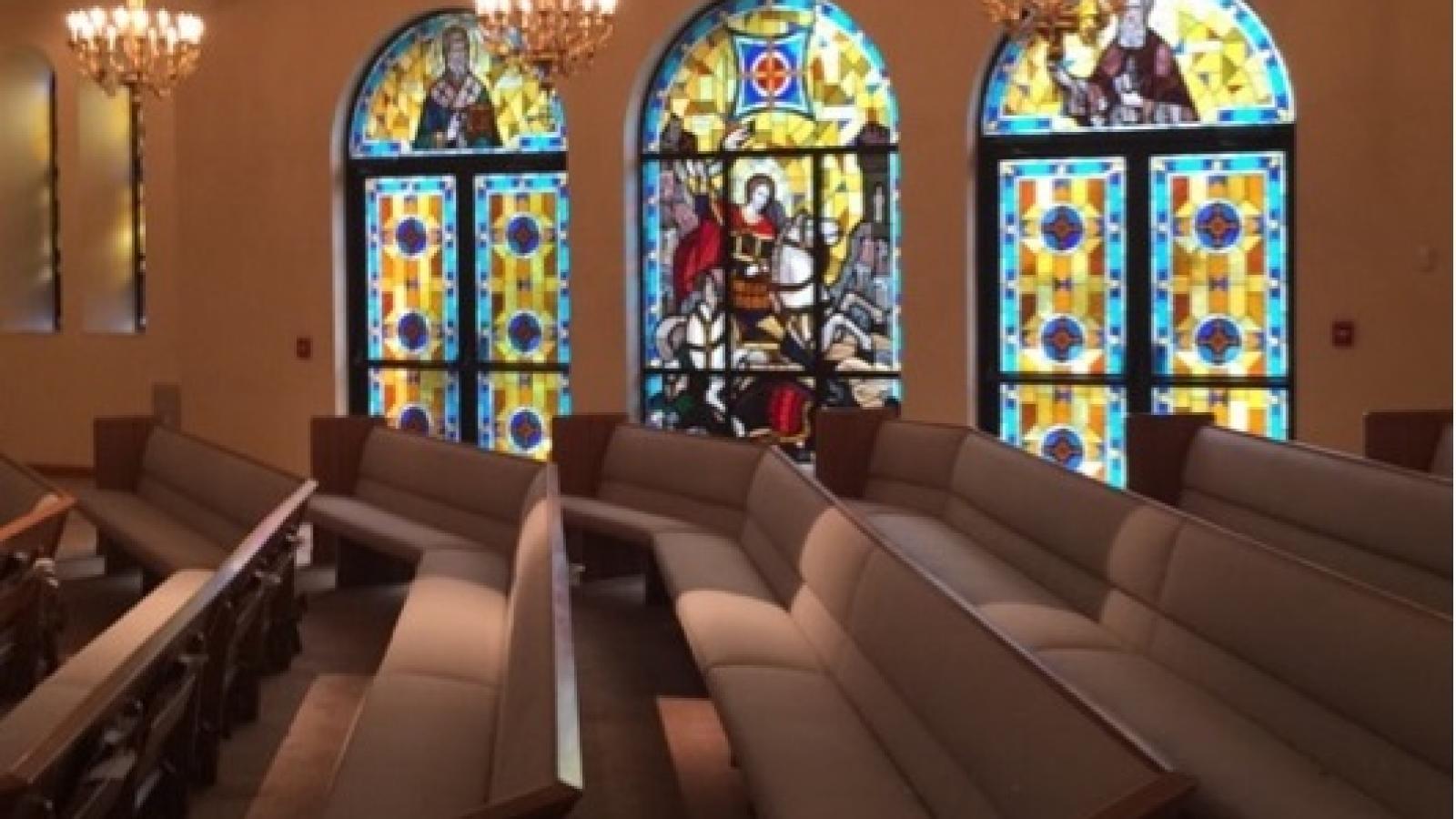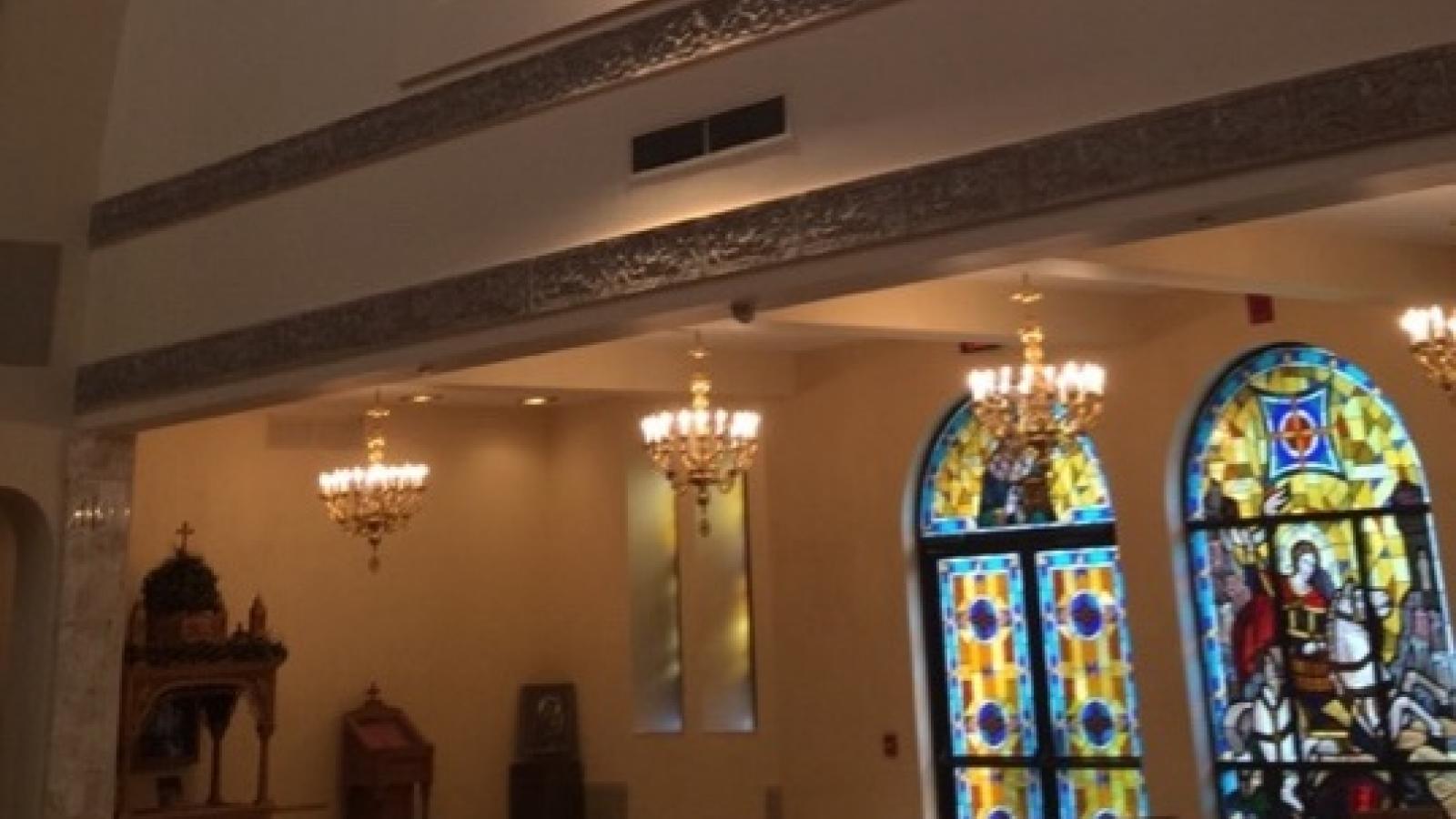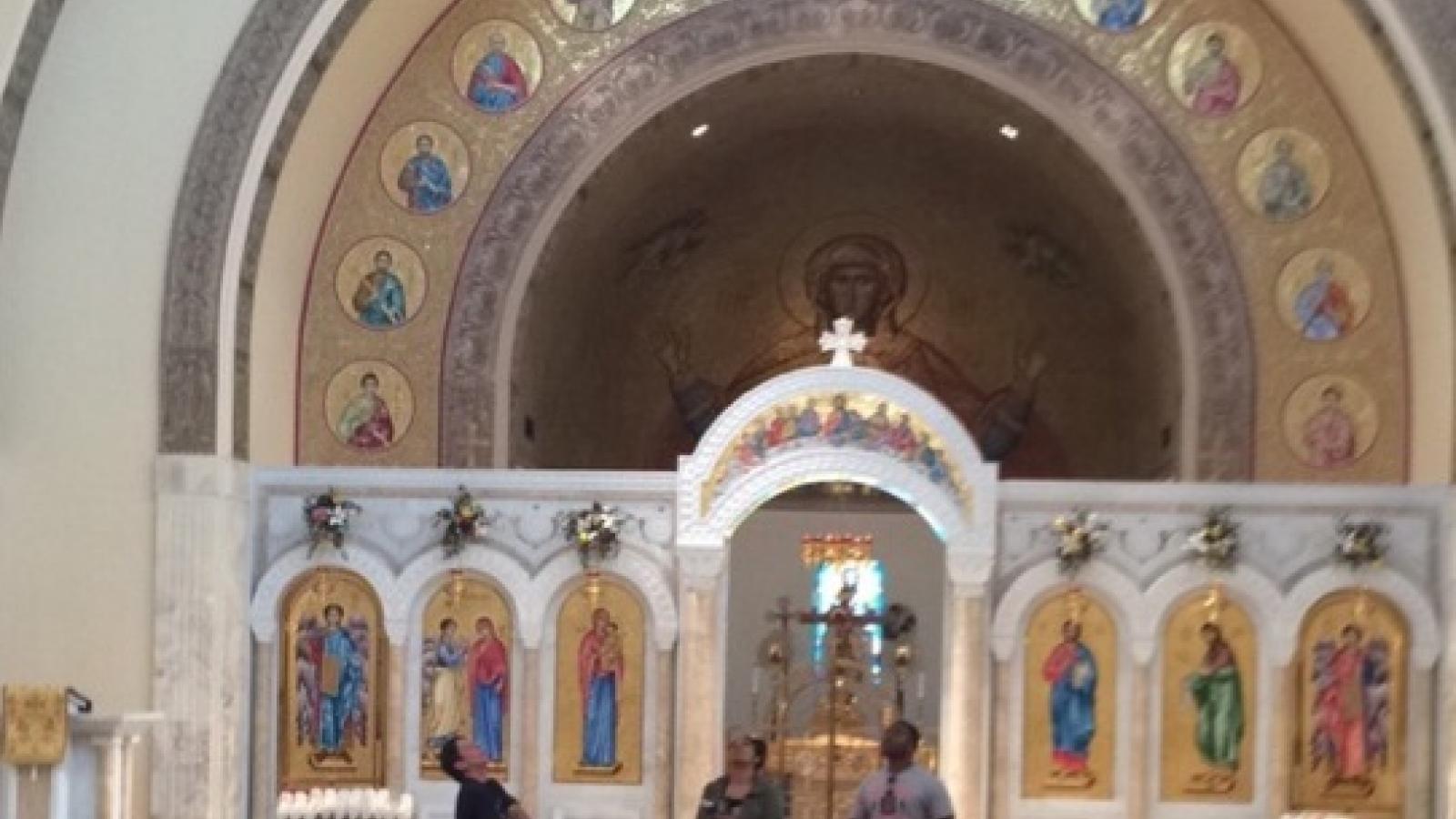Annunciation Greek Orthodox Cathedral
“In our churches, we want icons and pictures that are holy to us. Not only does the priest bless them, and they’re in the church and the church is consecrated by bishops…because we believe that the bishops higher up have blessed the building, and there are relics of saints that have.”--Mariah
The Annunciation Greek Orthodox Cathedral is located in downtown Columbus on High Street. It was founded in 1910 and built according to a Byzantine architectural style. It contains a church, a cathedral, a bookstore, and even an indoor basketball court. The community is very engaged with youth ministry, which currently numbers over 300 children. In addition, the community sponsors St. George on the Commons, a retirement community. The parish also hosts a Greek Festival on Labor Day Weekend that brings together Greek performers, artisans, and food vendors for the Columbus community.
This soundclip is a short excerpt from the Saturday choir rehearsal on the day before Pentecost. The choir is composed of approximately fifty members, although at this specific performance there was less than twenty members. According to one singer, the choir would typically have more members present during the Sunday service, although not everyone would necessarily attend. On Sunday, the choir would wear red robes and sit in their loft above the community. Most members would sing songs entirely from memory, although they each owned a binder containing the hymns.
“A lot of it that we sing is modern Greek. But when the Priest reads from the bible there are certain words that are in Greek, and there will be others that are in Ancient Greek that were just never changed.” --Valerie Baker
The voice in the background of the recording is that of Valerie Baker, the Choir Director. During this rehearsal, Valerie stood at a lectern at the front of the room and directed the choir, often interrupting the singers in order to correct a particular note or clarify pronunciation of Greek words. According to Valerie, about half the service and songs are performed in either ancient or modern Greek, while the other half is English. This split is significant because the community has diverse backgrounds: some have recently arrived from Greece and speak little English, while others are young and still learning Greek. Thus, by employing both languages in the performance, the choir is able to keep everyone happy without alienating anyone in the congregation. This clip offers a brief overview of the dynamic rehearsal in practice as Valerie corrects pronunciation of Paraclete and leads the choir through one of the opening Pentecost songs. In it, you can hear the range of voices, from bass to tenor and soprano.
(Interview with Choir Director, Valerie Baker)
The choir rehearsal recording gives us a behind-the-scenes glimpse of worship at The Annunciation Greek Orthodox Cathedral. The brief recording shows the vocal talent of the community in the way the choir practices and attempts to improve their performance. More importantly, it suggests that this community values the sound of the choir a great deal and that the choir is a central feature of their Sunday services. At one point during the rehearsal, someone asked why the choir still uses “thee” instead of “you,” and wondered if this language was praising God in a more formal, important manner. The organist suggested that “thee” is actually an easier note to hold and that it sounds better when sung by a choir, even though the national trend is to replace the word with “you.” Although this dialogue is not available in the recording, it suggests that the choir engages with and reflects on the songs they sing, which means that the lyrics are meaningful in different ways for the community. At The Annunciation Greek Orthodox Cathedral, the choir is carefully managed by regular practice, a director, and coordination with the clergy. This type of planning shows not only the significance of song in the community but also the way that the choir performs for the entire congregation, which suggests that singing is both pleasing and spiritually important.
Field Researchers:
Ashton Hood
Gregg Vaillancourt
Yan Zhang




